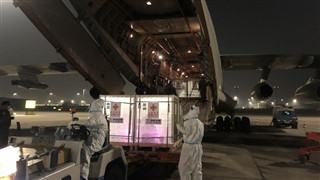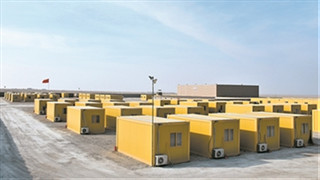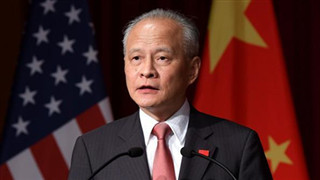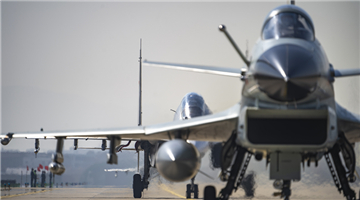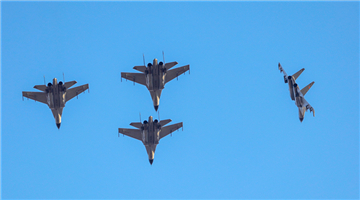
The political antagonism in Myanmar continued to intensify after the military announced its takeover. The US, the UK, Australia and other countries have successively called for the Myanmar military to "surrender power" and warned that they would take actions against those responsible.
Chinese Foreign Ministry Spokesperson Wang Wenbin said on February 2 that whatever actions taken by the international community shall contribute to Myanmar's political and social stability, promote its peace and reconciliation, and avoid escalating the conflict and complicating the situation.
The National League for Democracy (NLD)of Myanmar called forAung San Suu Kyi’s release,that of President Win Myint and all detained party members..It also demanded the military recognise the confirmed result of the 2020 general election and convene the parliament in accordance with the constitution. However, the military has yet to respon to those calls.
The international community is gravely concerned about how the situation in Myanmar will unfold and when Aung San Suu Kyi will gain freedom again. Xu Liping, director of the Center for Southeast Asian Studies at the Chinese Academy of Social Sciences, said that the Myanmar coup once again underscored the challenges Myanmar’s "transition to democracy" faces. To a certain extent, the military played a decisive role at the critical moment of Myanmar's political transition as no political force in the Southeast Asian country has a say bigger than the military. Therefore, there is little possibility that the political dilemma in Myanmar can be fixed any time soon.
The Myanmar military was once again caught in the crossfire of Western condemnation by this putsch, known as the "February crisis.". Leaders of many Western countries and organizations, including US President Joe Biden, British Prime Minister Boris Johnson, European Commission President Ursula Von der Leyen, and German Foreign Minister, have successively expressed their views on the situation in Myanmar since the political mess. They all strongly condemn the "coup," ask the military to release the detained personnel, and urge the Myanmar military to "respect" the election result. But the warning signals released by them are different.
While calling on Myanmar's military leaders to respect the results of last November's parliamentary elections, the French government said that the French side is paying close attention to events in Myanmar and is discussing countermeasures with partners in the United Nations. Australian Foreign Minister Marise Payne and Japanese Minister of Foreign Affairs Toshimitsu Motegi called on the Myanmar government to release the personnel and respect the rule of law. Still, they did not threaten to take measures against Myanmar. The ROK Ministry of Foreign Affairs paid more attention to the safety and rights of ROK citizens and enterprises in Myanmar.
In contrast, the US and the UK threatened to impose sanctions. The Foreign, Commonwealth and Development Office of the UK summoned Myanmar's ambassador in London on February 1, threatening to use "all necessary diplomatic means" to ensure the peaceful return to democracy. The Biden administration officially determined the action of the Myanmar military as a "military coup" on February 2, saying that it will consider cuts in aid to Myanmar, and impose sanctions and other measures on "the very small circle of military generals" responsible. However, some US media believe that the US has limited influence over the leadership of Myanmar's military, leaving Biden with few bargaining chips to "hold someone responsible".
Analysts pointed out that the condemnation and threats of sanctions from the US and Europe may not have a substantial impact on Myanmar. On the contrary, if the Biden administration imposes broad and severe economic sanctions on Myanmar as the Bush and Obama administrations did, it may further alienate the people of Myanmar and worsen their attitude towards the West.
(This article is originally published on www.cyol.com and translated from Chinese into English and edited by the China Military Online. The information, ideas or opinions appearing in this article do not necessarily reflect the views of eng.chinamil.com.cn.)



